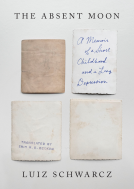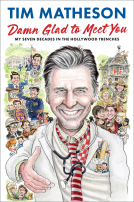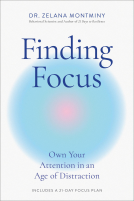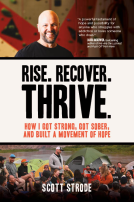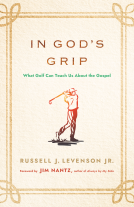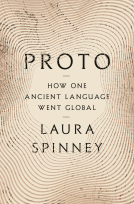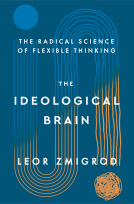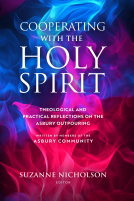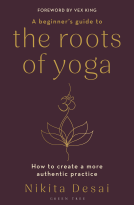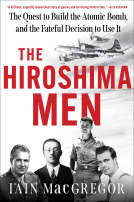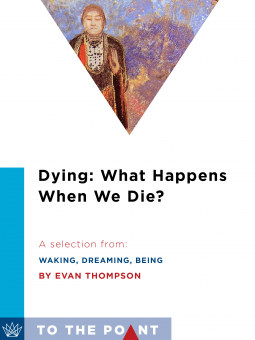
Dying: What Happens When We Die?
A Selection from Waking, Dreaming, Being: Self and Consciousness in Neuroscience, Meditation, and Philosophy
by Evan Thompson
This title was previously available on NetGalley and is now archived.
Send NetGalley books directly to your Kindle or Kindle app
1
To read on a Kindle or Kindle app, please add kindle@netgalley.com as an approved email address to receive files in your Amazon account. Click here for step-by-step instructions.
2
Also find your Kindle email address within your Amazon account, and enter it here.
Pub Date Sep 02 2014 | Archive Date Dec 04 2014
Description
In the ancient Indian epic, Mahābhārata, the Lord of Death asks, “What is the most wondrous thing in the world?”, and his son answers, “It is that all around us people can be dying and we don’t believe it can happen to us.” This refusal to face the inevitability of death is especially prevalent in modern Western societies. We look to science to tell us how things are but biomedicine and neuroscience divest death of any personal significance by presenting it as just the breakdown of the body and the cessation of consciousness. The Tibetan Buddhist perspective stands in sharp contrast to this modern scientific notion of death. This tradition conceives dying not as the mere termination of living processes within the body, but as a rite of passage and transformation of consciousness. Physical death, in this tradition, initiates a transition from one of the six bardos (“in-between states”) of consciousness to an opportunity for total enlightenment. In Dying: What Happens When We Die?, Evan Thompson establishes a middle ground between the depersonalized, scientific account of death and the highly ritualized notion of death found in Tibetan Buddhism. Thompson’s depiction of death and dying offers an insightful neurobiological analysis while also delving into the phenomenology of death, examining the psychological and spiritual effects of dying on human consciousness. In a trenchant critique of the near-death experience literature, he shows that these experiences do not provide evidence for the continuation of consciousness after death, but also that they must be understood phenomenologically and not in purely neuroscience terms. We must learn to tolerate the “ultimate ungraspability of death” by bearing witness to dying and death instead of turning away from them. We can learn to face the experience of dying through meditative practice, and to view the final moments of life not as a frightening inevitability to be shunned or ignored, but as a deeply personal experience to be accepted and even embraced.
To the Point Series
A Note From the Publisher
Advance Praise
Praise for Waking, Dreaming, Being
"An extraordinary tour of the burgeoning body of science and scholarship relating consciousness, the brain, and first‐person contemplative phenomenology. Written in a lively, very engaging, and accessible style, Waking, Dreaming, Being makes clear both the relevance and relationship of current contemplative neuroscience and neurophenomenology to core questions in the philosophy of mind."
—Alfred W. Kaszniak, Professor of Psychology, Neurology, and Psychiatry, And Evelyn F. McKnight Brain Institute, University of Arizona
"In a game-changing book that is both an intellectual tour-de-force and the courageous statement of a life’s ideal, Evan Thompson brilliantly demonstrates how Indian philosophical thought can join forces with the neurosciences to create a new science of the conscious mind. A must-read for anyone who believes that the future of philosophy is cross-cultural."
—Jonardon Ganeri, Professor of Philosophy, University of Sussex and Professorial Research Associate, School of Oriental and African Studies
"Evan Thompson has been at the forefront of the fields of philosophy of mind and cognitive science for the past two decades, and his technical competence extends to Asian philosophy as well. Waking, Dreaming, Being ventures down paths that many 'serious scholars' fear to tread, dealing not only with traditional epistemological puzzles posed by dreaming and dreamless sleep, but also with near death experiences and other extraordinary states that are often ignored in the academy. Thompson covers a tremendous amount of ground in this volume, and his analysis is informed by an interdisciplinary breadth that is second to none."
—Robert H. Sharf, D. H. Chen Distinguished Professor, and Director of the Center for Buddhist Studies, University of California, Berkeley
"Waking, Dreaming, Being is the kind of sophisticated, yet still extremely incredibly accessible, treatment of consciousness we have been waiting for. Just what does it mean to be human, to have this range of experience, and what are various ways we can use, indeed must use, to investigate this? This book pushes us to think beyond our entrenched conceptual boundaries, not with vague arguments or wishful thinking but with equal doses of logical rigor and phenomenological empathy."
—William S. Waldron, Middlebury College
Marketing Plan
No Marketing Info Available
No Marketing Info Available
Available Editions
| EDITION | Ebook |
| ISBN | 9780231538954 |
| PRICE | $1.99 (USD) |
Average rating from 2 members
Readers who liked this book also liked:
Rev. Dr. Suzanne Nicholson
Christian, Nonfiction (Adult), Religion & Spirituality
